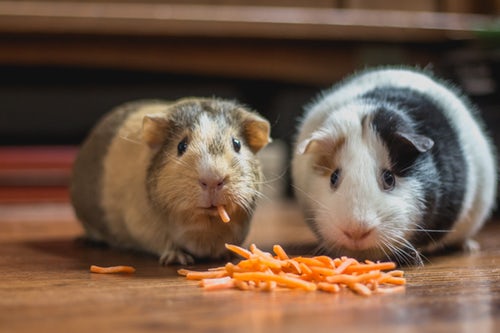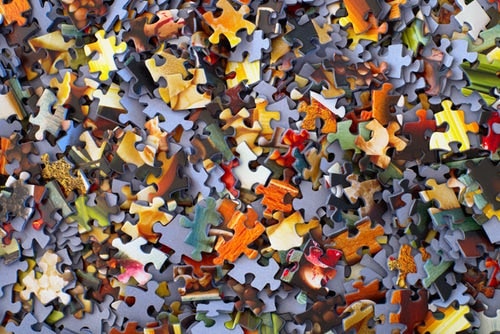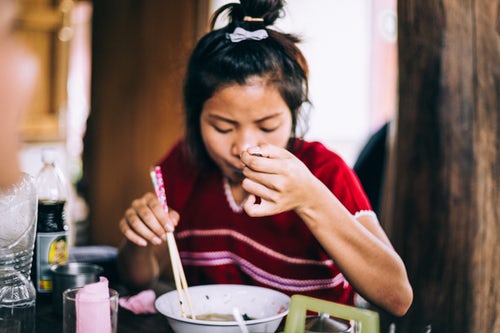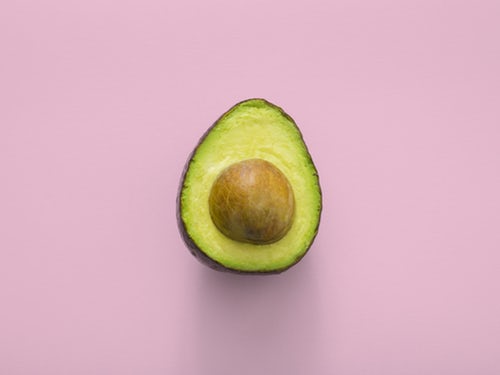You are born with a specific sequence of DNA. This is predetermined the moment you are conceived, half from your mother and half from your father. It is these strands of DNA, the very famous double helix of life which encode a set of genes, all the genes you will ever need to become a fully functioning human being and this set of genes is unique to you. This set of genes and all the bits and pieces of DNA between the genes are unique to each of us. One of the things about having unique DNA is that it means you are unique in your needs and this includes right down to the types of foods that are best for you to consume for your optimal health (nutrigenetics).
On the other hand, while you may be born with a set of genes which of these genes and how much or how little of the products they code for are made is influenced by a number of factors including the environment you work, play and live in (otherwise known as everything you do). What this means is that while your genes are most certainly predetermined within those magical double helixes they do not lead to inevitable life and health outcomes. Aka your genes are not your destiny. Your genes are the hand of cards you are dealt but how you play those cards is equally (if not more) important and one tool we have to play with that can enhance our game is the foods we eat.
In this post we are going to explore nutrigenetics or how your genes determine your nutritional needs and nutrigenomics or how your genes are influenced by the foods you eat and what both of these mean when it comes to diet and living your everyday life in ways that support your best health and happiness.
Nutrigenetics

As humans we all share a need for common nutrients. For example, we all have a need for minerals such as calcium and iron because all human bodies use these minerals for the same purposes including building bones and creating red blood cells. We cannot make these nutrients within our bodies, so we have to get them from the foods we eat and while we all need these common nutrients we are slightly unique in our nutritional requirements in terms of the amount of each nutrient we need in order to function at our best. There are also a bunch of other non-nutritive compounds in foods which benefit our health and which we need in differing amounts (more on this in another post).
What Accounts for These Differences in Nutritional Needs?

Due to differences in the ways our bodies store, process, utilise and metabolise different nutrients some of us have higher needs and some of us lower needs in order to maintain the same level of health. Nutrigenetics is a field of science which studies how our genes affect our nutritional needs. What this means in very simplified and practical terms is that some of us will have to eat 3 slices of cheese a day and some of us will have to eat 7 for it to have the very same health effect and for some of us drinking four cups of coffee per day will protect against chronic disease and for some of us it will increase our risk of developing it. A little confusing? I know but stay with me and it will all become clear (or pick up the phone and call a dietitian now to have your questions answered).
Why Does This Matter?

What your body needs in terms of nutrition will be different to what your friends, family, partner and so on need for their optimal health. Rather than see this as a limitation I think this is something that is super exciting and has the potential to really change things for us because when you understand this you relinquish the need to follow outside rules and instead trust in your body.
One of the biggest health problems I see in my work is people struggling to make food choices for themselves. Most often at some point they learnt their body couldn’t be trusted and that what they should eat had to come from someone in the outside world giving them ‘permission’. Nutrigenetics gives us the hard and fast science that just because something worked for one person it does not mean it will work for you because their needs are different to yours. Nutrigenetics is real science, not one randomised controlled trial (RCT) that showed x.
There Is No Universal Best Diet

Nutrigenetics allows us to get super clear on the fact that health will not be found in any of the one size fits all dietary plans floating around. Nutrigenetics tells us what I see in practice every day that there is no universal diet.
Even when our best dietary advice is based off epidemiological data and averages it cannot meet everyone’s needs. Where there are multiples studies on almost any food you can name we see one study showing eating x is great for your health and it’s the next superfood and another showing it is neutral and yet another that it increases your risk of developing disease. The reason these discrepancies exist is not always because the design was dodgy or because it was funded by a company with ulterior motives as we often like to blame (not that this doesn’t happen because I assure you it does!) more the real reason is very simple and it is that our bodies are different. Our bodies are different and therefore react differently to the very same food.
The Harms of Innocent Ignorance

When people don’t understand nutrition or genetics, we see them insisting that those who are following generic dietary advice and aren’t making health gains are not following them properly or that they are the exceptions to the rule. When, in reality that is out here in real life there are variations and variations are not the exception to the rule they are the norm. The implications of this narrow view are attempts to create a universal diet and bulk nutrition and healthy eating campaigns promoted as gospel when in reality they are limited and we will benefit a great deal more when we stop pretending this isn’t so. There is a need for a balance between public health recommendations and the advice given to individuals which is why I always encourage you to seek personalised nutrition information from a credible source (aka a dietitian).
Now to the Other Side of the Gene-Food Story…
Nutrigenomics

On the flip side of nutrigenetics (how your genes affect your nutritional needs) is nutrigenomics which is how what you eat affects your gene expression.
Nutrigenomics is an area I find even more fascinating than nutrigenetics. The fact that what you eat affects your gene expression, that is that what you eat affects you at the most fundamental level is bristling with happy and meaningful potential (and in my expert opinion currently underutilised potential).
Why Is This Important?

What you eat can alter the expression of your genes so that the products those genes code for (proteins and all the things made from these proteins) act differently and when the products they code for act differently this produces different outcomes. This means that while your genes are vital to determining and overseeing function you have a level of control over how your genes are expressed and one of these ways is through your food choices.
What Does This Mean?

Essentially what this can mean is that what you eat influences whether you will reach the potential established by your genetic background or not. That is while your genes, to a degree do set a limit to your health potential, what you eat over the course of your lifetime either enables or restricts your ability to reach the level of highest possible health for you.
A Couple of Examples of Gene-Nutrient Interactions

The study I was reading recently, and which inspired this post identified 9 key nutrients that have been shown to impact our genetic material in various ways1. To give an example of just one of the nutrients investigated and its interaction with your DNA we will take a look at folate.
Folate is a well-known B vitamin found in good quantities in beef liver, legumes, asparagus, eggs and green leafy vegetables. In this paper it was suggested that a folate deficiency could cause as much damage to human DNA as 10 times the annual allowed limit of exposure to x-rays1. This is a finding I would very much consider worthy of attention as it is this kind of DNA damage that if left unregulated and uncorrected can lead to the development of cancer.
Another study published in 2016 showed very compelling results as to how diet and lifestyle can decrease risk of developing cardiovascular disease (CVD)2. In this study participants were divided into three groups based on their genotype; those that were high risk for developing CVD, those that were medium and those that were low risk. What this study concluded was that those with a high genetic risk for developing CVD could reduce their chances of developing the disease by 50% if they had a high-quality diet and lifestyle compared to those who were high risk with a poor diet quality diet and lifestyle. That’s a meaningful impact in strong support that what you eat and what you do have huge influence over your health outcomes even in cases where your genes may be ‘working against you’.
What This Does Not Mean

Neither of these examples are to say that if you don’t eat enough folate you will get cancer or if you eat a shonky diet you will get CVD because these are of course only part of many, many factors which influence the development of both. I wanted to share them with you more as a means of highlighting just how much what you eat really can affect your health beyond the superficial weight loss and weight gain that most people associate with the word ‘diet’. Dominant diet culture messages insist health is found in eating less or this or that miracle product and the science simply does not support this. Health is not synonymous with eating less and food has greater significance to our health than calories.
Nutrigenomics and Disease

The fact that we know many diseases have at least some genetic component including Alzheimer’s disease, cancer, eating disorders and as we talked about above CVD allows us the ability to change our dietary habits to lessen our risk of going on to develop these diseases. My absolute favourite way of thinking of genes is that there are no such things as genes for disease there are only functional genes. Functional genes are functional because they are altered by our inputs and one of these inputs, we have control over is the foods we ea. Arguably one of the largest inputs because our very biology is based on food and our diet and lifestyle impact our health twenty-four hours a day seven days a week.
Am I Doomed If I am Not Eating to My Genotype?

No, in fact far from it. Human genetics were created for diversity. Our ability to consume a wide variety of diets (from 80% fat as in the diet of Eskimos to Asian diets in which carbohydrates are the dietary mainstay) is one of the reasons, probably the main reason we have survived and thrived to the level we have. If we had a narrow range of foods we had to eat or if we all had exactly the same needs, we’d have died out as a species long ago. When it comes to practical everyday life as a human you are well adapted to a wide variety of food intakes and it seems not exceptionally pressing or necessary to go to the extreme of getting your genome sequenced in order to eat to support your health.
What Does All This Mean?

Both nutrigenetics and nutrigenomics have truly enormous potential to change your health. Indeed, these findings combined have created the possibility to tailor a nutrition plan specific to your needs such as has never before been possible. You can imagine that eating to a plan that was entirely tailored to you at the level of your most fundamental components, your genes, would ultimately allow you to achieve and maintain a level of optimal nutritional health. These fields are incredibly exciting and worth knowing, practicing the principals of and perhaps keeping an eye on if you’re interested because they will no doubt expand in the near future.
What Can I Do With This Information?

Falling short of creating a custom food plan specific to your genome it is incredibly inspiring and useful to have the knowledge that you are not at the mercy of your genes. You can change your genetic material which means you have power over something that is contributing to shaping your destiny and if that’s not exciting, I don’t know what is.
What you eat will promote healthy and optimal gene expression and this literally gives you the best chance at succeeding and reaching the potential that is written in your genes. How do you do this in everyday life? Start by seeking high quality and reliable nutrition information and strategies to support you in reaching your health and wellness goals (aka by seeing a dietitian). Start by not being one of the ones who underestimates food as a tool for health until it is too late.
Take Home Messages

Your genes partly determine your dietary requirements and your dietary intake partly determines how those genes are expressed and as such food plays an important role in your health outcomes.
Food is an everyday part of life and something upon which we all hold opinions, but opinions don’t create health which is why I encourage you to see someone who has credentials in human biology, health and nutrition (aka a dietitian). If you truly want to experience the difference nutrition can make for you now is your time to get in touch with me. When you are able to eat to your needs your health, wellbeing and fulfillment in life will far exceed what you will ever be capable of by continuing to force yourself to follow an external plan.
Imagine if it was just an extra slice of cheese a day which was holding your body back from having its perfect mineral balance and functioning optimally. Imagine if you never got to experience what it could have been like because you stuck with what such and such said about only eating 3 slices of cheese a day.
If you’re as excited as I about nutrigenomics and see wellbeing as more than the absence of disease, please get in touch with me today and let’s see how far we can take it.
With my whole heart I trust you found this information useful and inspiring

Become Great. Live Great.
Bonnie.
Reference
- Fenech M, Baghurst P, Luderer W, Turner J, Record S, Ceppi M, Bonassi S. Low intake of calcium, folate, nicotinic acid, vitamin E, retinol, β-carotene and high intake of pantothenic acid, biotin and riboflavin are significantly associated with increased genome instability—results from a dietary intake and micronucleus index survey in South Australia, Carcinogenesis.1 May 2005;26(5):991–999.
- Khera AV, Emdin CA, Drake I, Natarajan P, Bick AG, Cook NR, Chasman DI, Baber U, Mehran R, Rader DJ, Fuster V, Boerwinkle E, Melander O, Orho-Melander M, Ridker PM, Kathiresan S. Genetic Risk, Adherence to a Healthy Lifestyle, and Coronary Disease. New England Journal of Medicine. 2016;375:2349–2358.




2 thoughts on “A Simple Guide to Nutrigenetics & Nutrigenomics”
Food and health. Diet and genetics influence each other.The link between what we eat and what is written in our DNA – our genetic code – has assumed unprecedented importance in recent decades, partly due to advancements in research and techniques of molecular biology.
Absolutely. It is an interesting field and only going to grow. Thanks for your comment 🙂